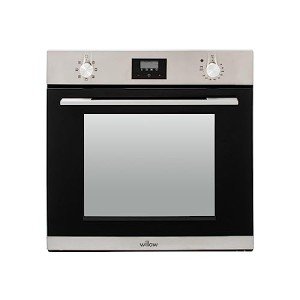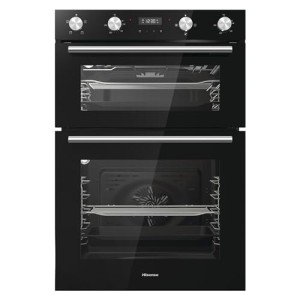5 Killer Quora Answers On Builtin Oven
ліёл¬ё
The Comprehensive Guide to Built-In Ovens: Features, Benefits, and FAQs
Built-in ovens are a popular choice for contemporary kitchen areas, offering adaptability, efficiency, and a sleek design that integrates flawlessly into cabinetry. This post will look into the numerous aspects of built-in ovens, including their functions, benefits, installation alternatives, maintenance pointers, and Builtin oven answers to commonly asked questions.
What is a Built-In Oven?
A built-in oven is developed to be installed within kitchen cabinetry and is available in various setups, such as single or double ovens. Unlike freestanding ovens, built-in designs provide a structured appearance and offer more versatility in kitchen style. They come in electric, gas, and steam alternatives, accommodating a variety of cooking choices.

Features of Built-In Ovens
Built-in ovens are packed with features that improve cooking experiences. Here are a few of the most typical functions to consider:
| Feature | Description |
|---|---|
| Self-Cleaning | Lots of designs consist of a self-cleaning function that burns residue at heats, streamlining maintenance. |
| Convection Cooking | This feature utilizes a fan to distribute hot air, cooking food more equally and rapidly. |
| Smart Technology | Some integrated ovens and hobs come equipped with Wi-Fi connectivity, allowing users to control the oven from another location by means of mobile phone. |
| Numerous Cooking Modes | Include alternatives such as baking, broiling, roasting, and air frying, supplying versatility for various meals. |
| Temperature Probe | Keeps an eye on the internal temperature of food, ensuring perfectly cooked meals whenever. |
| Streamlined Design Options | Available in various finishes (stainless-steel, black, white) to match kitchen decoration. |
Benefits of Built-In Ovens
The setup of a built-in oven brings various benefits to any kitchen:
- Space Efficiency: Built-in ovens take full advantage of kitchen area, supplying a tidy and organized appearance without compromising performance.
- Enhanced Cooking Performance: With advanced features like convection cooking and accurate temperature level controls, built in oven uk-in ovens often outperform conventional models.
- Style Flexibility: These ovens can be installed at eye level, permitting easy gain access to without bending down, which can be especially helpful for people with physical limitations.
- Enhanced Resale Value: A well-designed kitchen with premium built-in appliances might attract potential purchasers, boosting overall home worth.
- Personalization Options: Many brands provide customizable designs that fit the particular measurements and visual of private kitchens.
Setup Options
When selecting a built-in oven, comprehending the setup alternatives is important. Here are the most common setups:
Single Built-In Oven: Ideal for smaller kitchens, these units offer sufficient space to prepare a range of meals simultaneously, ideal for daily cooking.
Double Built-In Oven: Best fit for passionate cooks and large families, double ovens enable for synchronised cooking at 2 various temperature levels, ideal for meals that require different cooking approaches.
Combination Steam and builtin oven (moved here): A hybrid solution that integrates the benefits of traditional baking with steam cooking. This option is exceptional for retaining moisture in foods, making it ideal for baking bread or roasting meats.
Maintenance Tips for Built-In Ovens
Keeping a built-in oven is necessary for its durability and optimal performance. Here are some useful maintenance tips:
Regular Cleaning: Use the self-cleaning feature when necessary, and wipe down the exterior and interior surface areas regularly to prevent grease buildup.
Examine the Seals: Inspect the oven door seals for any wear or damage to ensure correct insulation and cooking performance.
Temperature Calibration: Occasionally check the temperature level accuracy using an oven thermometer, specifically if cooking times appear longer than typical.
Ventilation: Ensure adequate ventilation around the oven to avoid overheating, specifically for built-in models that may be surrounded by cabinetry.
Frequently Asked Questions About Built-In Ovens
1. Are built-in ovens more expensive than freestanding models?Yes, built-in integrated ovens and hobs tend to be more costly due to their design, setup requirements, and additional features. However, their advantages can justify the cost in the long run.
2. Can you install a built-in oven yourself?While some useful people might try to install a built-in oven, it is suggested to hire a professional to make sure correct setup, ventilation, and safety standards.
3. What is the typical life-span of a built-in oven?The typical lifespan of a built-in oven built in is around 10 to 15 years, depending upon usage and maintenance. Routine care can assist extend its durability.
4. Are built-in ovens energy efficient?Numerous contemporary built-in ovens are developed with energy efficiency in mind, integrating features like insulation and precise temperature level controls that might lower energy usage compared to older designs.
5. Can a built-in oven be repaired if it breaks?Yes, built-in ovens can frequently be repaired. It is a good idea to get in touch with a licensed service technician for medical diagnoses and repair work to guarantee safety and compliance with service warranty arrangements.
Built-in ovens are an outstanding addition to any modern-day kitchen, offering a combination of design, performance, and advanced cooking functions. With the ideal knowledge about their functions, advantages, and maintenance, property owners can make informed choices to improve their cooking experiences. As kitchen design patterns continue to develop, the built-in oven remains a staple for those seeking to blend looks with effectiveness in their cooking areas.


лҢ“кёҖлӘ©лЎқ0
лҢ“кёҖ нҸ¬мқёнҠё м•ҲлӮҙ